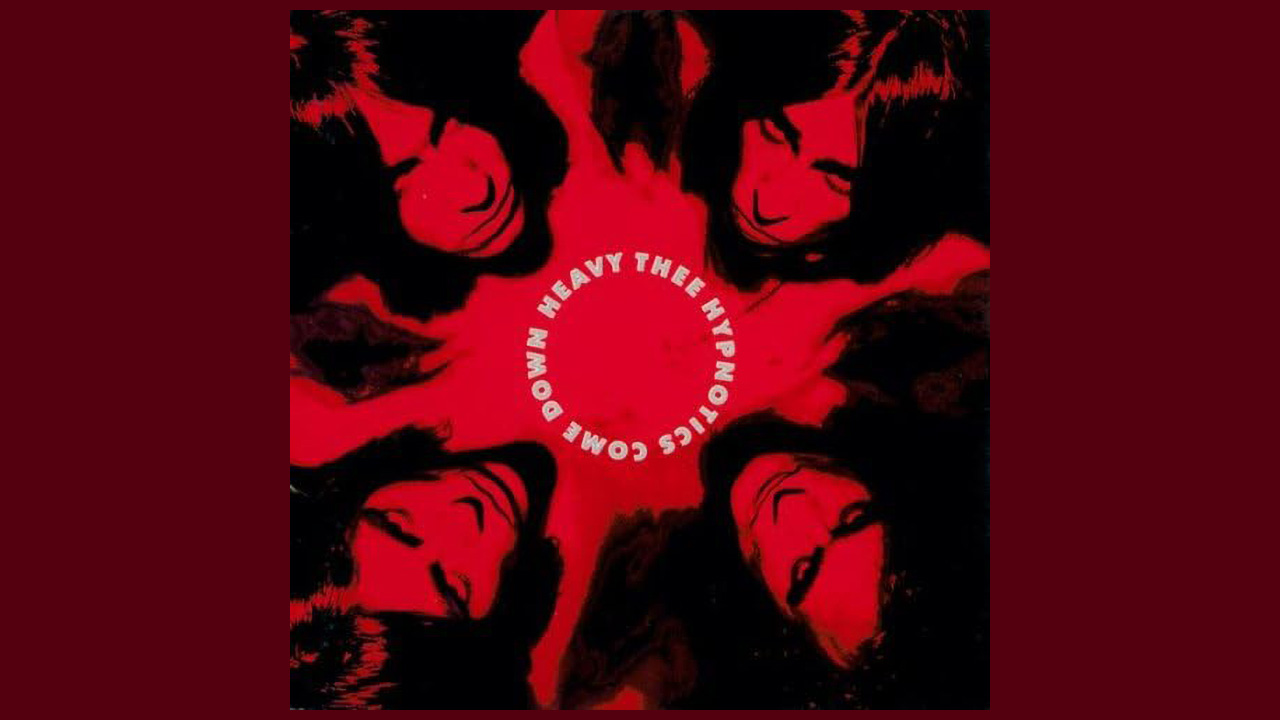“The hallmarks of Pink Floyd during the Obscured By Clouds era, with some deftly disturbing guitar plunges… A uniquely gifted and unfathomable band”: Thee Hypnotics’ Come Down Heavy remains hard to define
Their 1990 studio debut was full of prog promise - but one member’s reputed refusal to deal with his drug addiction limited their rise

Select the newsletters you’d like to receive. Then, add your email to sign up.
You are now subscribed
Your newsletter sign-up was successful
Want to add more newsletters?

Every Friday
Louder
Louder’s weekly newsletter is jam-packed with the team’s personal highlights from the last seven days, including features, breaking news, reviews and tons of juicy exclusives from the world of alternative music.

Every Friday
Classic Rock
The Classic Rock newsletter is an essential read for the discerning rock fan. Every week we bring you the news, reviews and the very best features and interviews from our extensive archive. Written by rock fans for rock fans.

Every Friday
Metal Hammer
For the last four decades Metal Hammer has been the world’s greatest metal magazine. Created by metalheads for metalheads, ‘Hammer takes you behind the scenes, closer to the action, and nearer to the bands that you love the most.

Every Friday
Prog
The Prog newsletter brings you the very best of Prog Magazine and our website, every Friday. We'll deliver you the very latest news from the Prog universe, informative features and archive material from Prog’s impressive vault.
There’s a story that, shortly after the release of debut studio album Come Down Heavy, Thee Hypnotics had a meeting with a major American manager, who was very keen to represent them. He had just one immoveable stipulation: that a certain member of the band had to give up his passion for heroin. That person refused point blank, and so ended the High Wycombe band’s best chance of making a significant global impact.
True or not, what this tale does highlight is the way that Thee Hypnotics never conformed. After starting in 1985, they were quickly locked with Gaye Bykers On Acid and Crazyhead as part of a new, grebo-inspired, psychedelic explosion in the UK.
They were also seen as garage rock, punks and even a precursor for what happened in Seattle during the early 90s. All of which was accurate, but in an inaccurate manner.
Thee Hypnotics proved on the record (preceded in 1989 by the live Liv’er Than God!) that they were attracting influences from different corners of the musical universe. Unearthed has all the hallmarks of Pink Floyd during the Obscured By Clouds era, with some deftly disturbing guitar plunges from Ray Hanson.
Release The Feeling sees them channelling Quicksilver Messenger Service and Jefferson Airplane in a frenzied assault that’s both edgy yet vulnerable, with vocalist James ‘Jim’ Jones proving he has something of Jim Morrison about his manner.
And Resurrection Joe has a bluesy platform, from which the band launch into an apocalyptic, elliptical distorted epic that draws from Syd Barrett, The Beatles and krautrock. This is inventive and unsettling.
Sonic Lament is a two-minute instrumental that could easily have fitted on an early Hawkwind album, such is its orchestral eeriness. And Revolution Stone is undoubtedly one of the great pieces of music from the start of the 90s. It’s here the band’s brilliance swings into focus.
Sign up below to get the latest from Prog, plus exclusive special offers, direct to your inbox!
The track begins with a lazy piano-led refrain that’s bright and fresh, and slowly it morphs into something far more sinister. The band open up, allowing all manner of artistic styles – from jazz to Latin – to impose themselves on a multi-layered exercise that gives all four members – including drummer Phil Smith and bassist Will Pepper – ample room in which to explore their own virtuosity, without ever losing sight of the overall picture. It’s stunningly progressive and even now sounds avant garde.
Come Down Heavy stands as a remarkable testimony to a uniquely gifted and unfathomable band. Even now, nearly three decades on, it’s fascinatingly impossible to define.
Malcolm Dome had an illustrious and celebrated career which stretched back to working for Record Mirror magazine in the late 70s and Metal Fury in the early 80s before joining Kerrang! at its launch in 1981. His first book, Encyclopedia Metallica, published in 1981, may have been the inspiration for the name of a certain band formed that same year. Dome is also credited with inventing the term "thrash metal" while writing about the Anthrax song Metal Thrashing Mad in 1984. With the launch of Classic Rock magazine in 1998 he became involved with that title, sister magazine Metal Hammer, and was a contributor to Prog magazine since its inception in 2009. He died in 2021.

